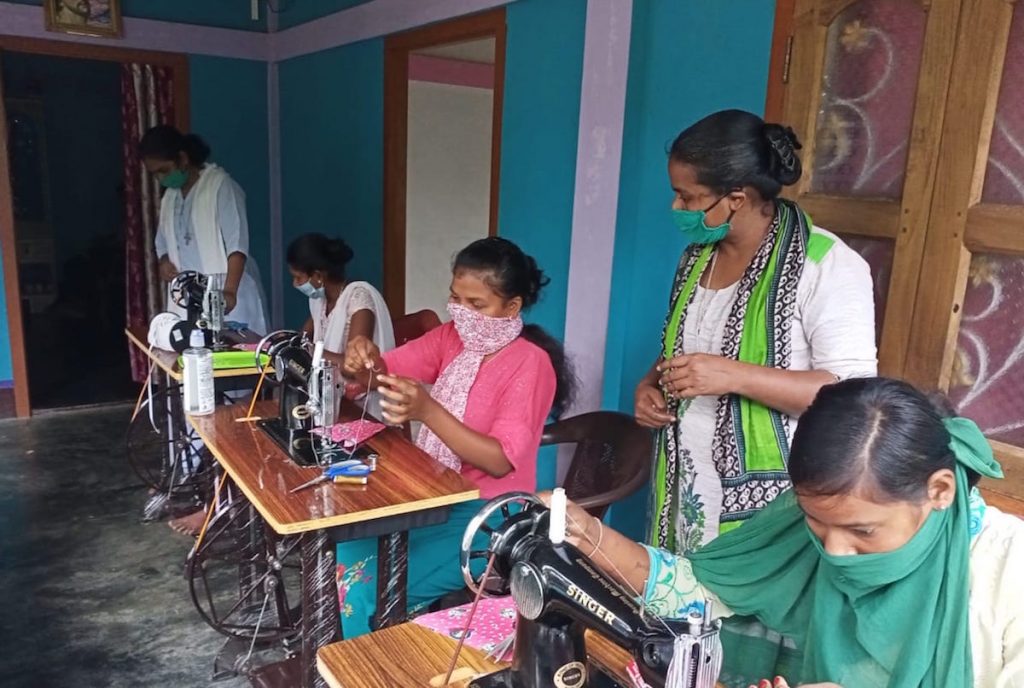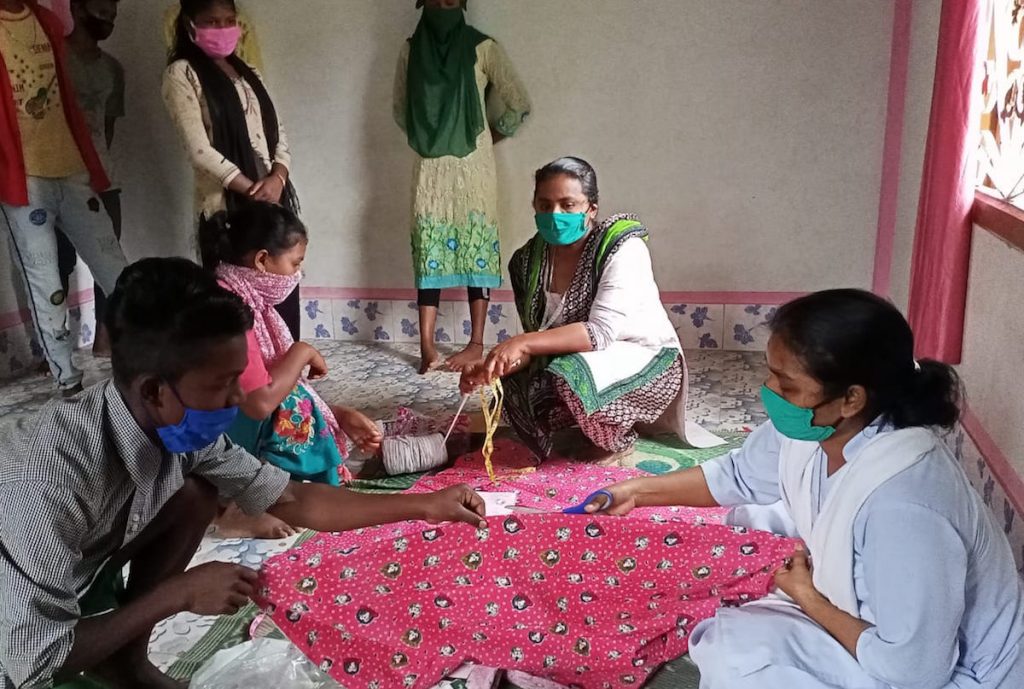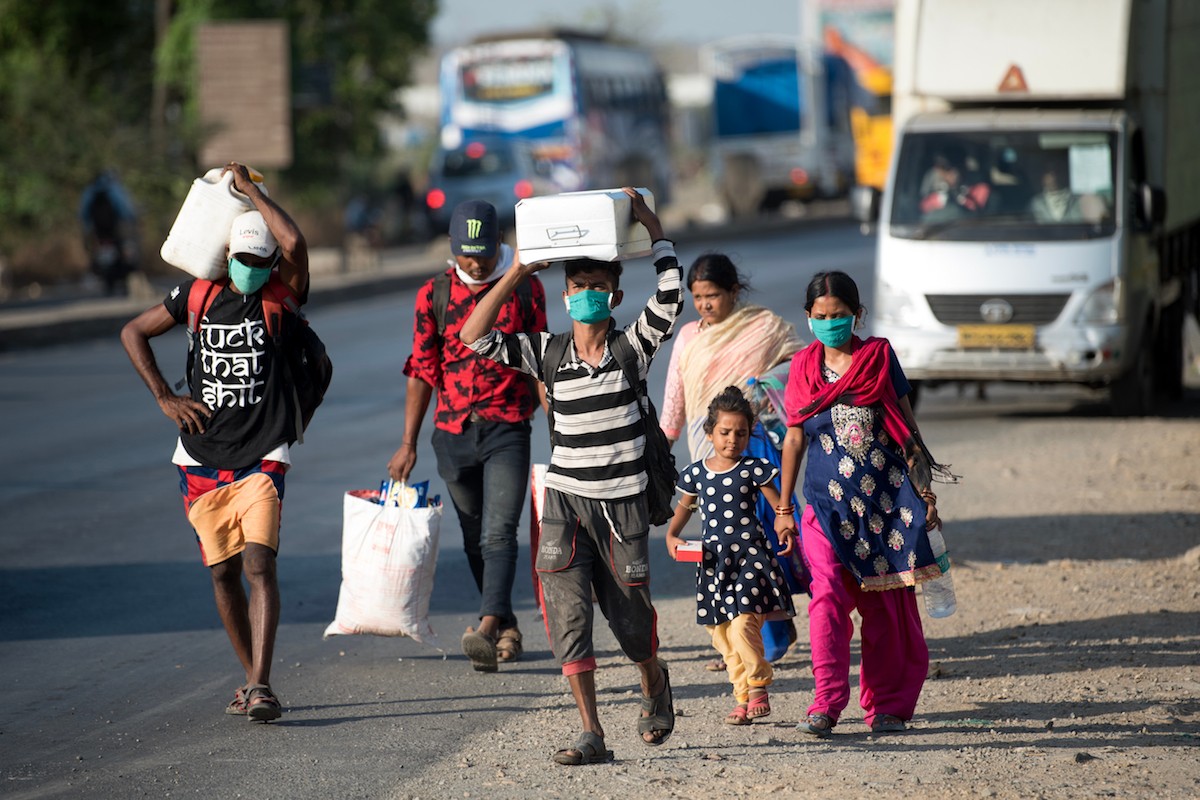When India’s federal government announced a nation-wide lockdown to suppress the COVID-19 pandemic it was like the end of the world for 33-year-old Rina Munda. She was one among the millions of migrant workers made redundant as employers shut their doors as per order March 25.
Munda had been employed as a domestic worker at a college hostel in India’s north-eastern city of Mizoram. On day one of the lockdown, she was told by management to pack her bags and leave the premises as soon as possible.
Like many other now unemployed migrant workers Munda took to the roads to travel to be with family during the lockdown.
After a four-day journey covering more than 400 km — done by foot or getting lifts from strangers — she finally reached her village in Assam where she sought refuge with her brother.
“I have no other relatives and my parents died a long time ago. It was only my brother’s home that provided me with a bulwark,” Munda told LiCAS.news.
After several days Munda realized that her brother’s family were struggling to make ends meet. Working in a local tea garden, he was earning no more than mere 150 rupees ($2 per day) and was responsible for feeding his four little children and a wife.
“I was scolding myself for becoming a burden to them. I tried hard, but I couldn’t find a way to earn a living there. Everything outside was shut and the lockdown had thrown life completely out of gear. God was my only hope,” Munda said.
Two months ago, Seva Kendra Silchar, a partner of Caritas India in Assam, learnt of Munda’s situation during a door to door survey.
The church-run organization was at that time providing sewing machines to people as part of a livelihood generation program to help people during the lockdown.
Munda seized upon the opportunity to earn a living that Caritas India was offering.
“I was provided with a sewing machine and cloth and was tasked to stitch face masks. It was a ray of hope for my life and a golden opportunity not to become a burden at my brother’s house,” she said. “I learnt the craft in two weeks and now I am well versed with it.”

In two months, Munda made 800 masks and earned herself about 8,000 rupees ($120). As a domestic worker in the city, she used to earn no more than 2,000 rupees ($30) a month.
“God finally came to my rescue. Instead of facing immense hardships in the city, I am now in the comfort of my home earning double that amount. I am planning to continue with this work and not to go back to the city,” Munda said.
Madhu Devi, a 43-year-old divorcee and mother of two children, used to work as a cook at a private school in Delhi. Hailing from India’s north-eastern state of Assam, Devi and her children rushed back to her village soon after the lockdown was announced.
“We have no agricultural land and no livestock. The house was in a dilapidated condition as we moved in and all we had as savings was a few hundred rupees that dwindled almost a week later,” Devi said.
During May, she found out about a Caritas livelihood generation program in her village and joined it. After three weeks training in tailoring, she was given work by Caritas itself.
“I was provided with a sewing machine and also work assignments like stitching bed sheets, face masks and uniforms,” Devi told LiCAS.news.
Now she is planning to repair her village house and send her kids to a local school.
“I will not go back to the city. The people there are hostile, and the society is sadistic. I will work here and live here forever now,” Devi said.

Udhay Kumar, a daily wage labor was working in India’s western state of Maharashtra when the lockdown went into place. After his workplace closed Kumar rushed back to his home village some 175 km away.
But it was not easy. The 57-year-old father of three daughters was finding it hard to survive with no income until June when he found help through one of the Caritas livelihood generation programs.
“I had half an acre of unused land in the backyard of my house. As I was busy working elsewhere, the land remained uncultivated for years,” Kumar said.
He spoke with a Caritas team who suggested that the land could be put to use, and they went on to provide him with quality seeds, fertilizers and information from agricultural experts.
“I am growing various types of vegetables now. God willing, the yield will be profitable, and I pray that I don’t need to be so desperate for money any longer,” Kumar said.
Father Paul Moonjely, executive director of Caritas India told LiCAS.news that Caritas has aimed to help 13,550 families through its income generation programs.
Father Moonjely said that Caritas is also working with community institutions to assist returnees reintegrate into their villages while also letting migrant workers become aware of various government schemes that can further assist them.
Of the 1.3 billion people in India, an estimated 43 million are migrant workers who toil in cities and towns as daily wage laborers. According to UN figures around 47 percent of them earn below $3.20 a day.







